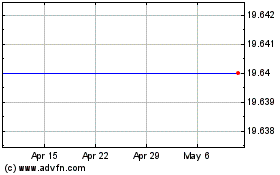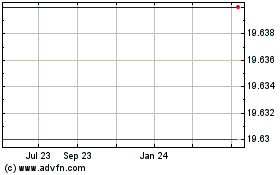Treasury Rules Could Make It Harder to Complete Some Spinoffs
July 14 2016 - 9:20AM
Dow Jones News
Companies would face new hurdles in completing tax-free spinoffs
of appreciated assets under rules being proposed Thursday by the
U.S. Treasury Department.
The government would make it harder for firms to complete some
types of spinoffs, though the rules likely wouldn't alter the tax
landscape for routine separations of two operating businesses.
The rules provide a numerical standard—5%—for the amount of a
spun-off company that must be an active trade or business for the
transaction to avoid capital gains taxes. This is known in tax
circles as the "hot dog stand" area of the law, for the theory that
companies could make a spinoff qualify for tax-free treatment by
attaching a tiny fast-food restaurant to a much larger pot of
assets.
The rules also attempt to set clearer standards for determining
when a spinoff is an impermissible "device" for distributing
earnings and profits to shareholders. Under the proposal, the
government would look askance at spinoff transactions in which at
least two-thirds of one company is made up of nonbusiness assets
and the other company has much less.
If there is too big a gap, measured using formulas in the
proposed rule, the transaction would be deemed a "device" and would
be taxable.
Treasury and the Internal Revenue Service signaled their
intention in September 2015 to study this area of the law. The
government expressed concerns about what "some taxpayers" were
doing with spinoffs that resulted in one company owning a
significant amount of cash, stock or other investments.
The government's notice didn't cite any cases specifically,
though the most prominent deal being discussed at the time was
Yahoo Inc.'s proposed spinoff of its appreciated investment in
Alibaba Group Holding Ltd., which it had planned to pair with a
much smaller Yahoo operating division. Yahoo later abandoned that
plan after the IRS declined to give it advance blessing, creating
the risk of a multibillion-dollar tax bill.
The rules being issued Thursday are prospective. They would take
effect only after the Treasury Department makes them final, and
even then, they wouldn't affect some transactions planned before
that date and completed afterward.
Write to Richard Rubin at richard.rubin@wsj.com
(END) Dow Jones Newswires
July 14, 2016 09:05 ET (13:05 GMT)
Copyright (c) 2016 Dow Jones & Company, Inc.
Altaba (NASDAQ:AABA)
Historical Stock Chart
From Mar 2024 to Apr 2024

Altaba (NASDAQ:AABA)
Historical Stock Chart
From Apr 2023 to Apr 2024
